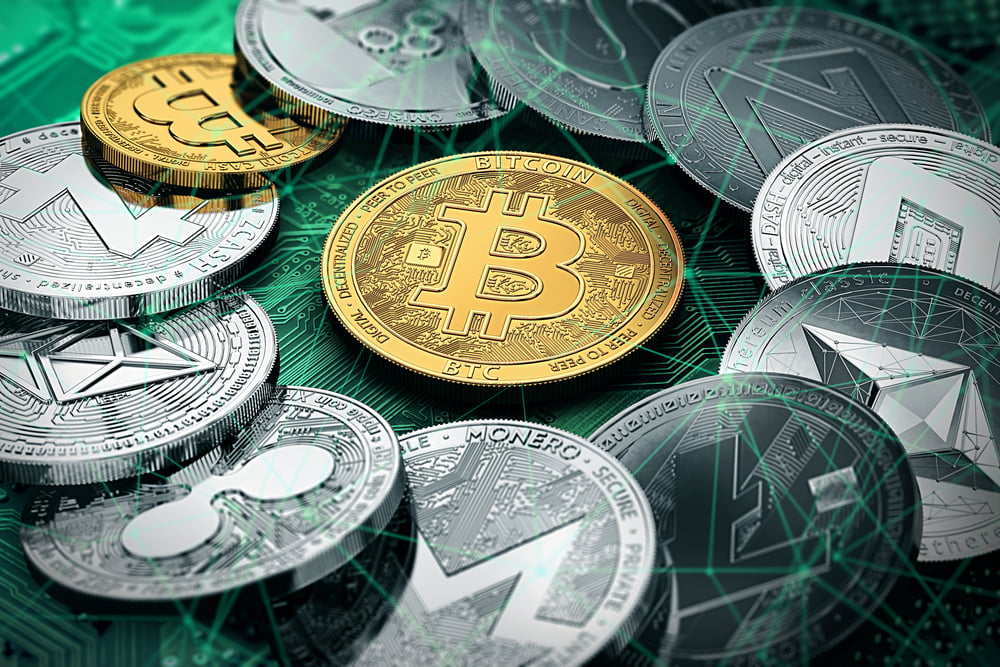Yesterday, top financial officials in both Japan and South Korea came to a similar conclusion: as they stand now, cryptocurrencies cannot be considered legitimate currencies. The statements come from countries where Bitcoin and other cryptocurrencies are quite popular in the public sphere, and they come from governments that have been relatively proactive in establishing a clear legal framework for the digital assets.
An Alternative to Fiat? Not Yet
As originally reported by Reuters, Japan’s minister of finance, Taro Aso, indicated that Bitcoin has not proven itself to be a reliable form of currency. The minister made it clear, though, that Bitcoin’s legal and financial status is not so cut and dry.
“There’s no fixed definition on whether it’s a currency or not. This issue is a difficult one,” Aso stated after a Tuesday cabinet meeting. He continued, “It has not yet been proven to be credible enough to become a currency.”
The key word here is “yet,” as Aso concluded by saying that he needs “to watch [it] for a little while more” before he can come to a conclusion as to whether or not it should be legal tender.
A reporter’s question regarding the French financial minister’s plans for cryptocurrency prompted the statement. Bruno Le Maire recently called for a discussion on “the question of Bitcoin” at next April’s G20 summit.
South Korea Echoes Aso’s Sentiments
Meanwhile in South Korea, the Financial Supervisory Service governor Choe Heung-sik also disavowed Bitcoin and its counterparts as legitimate currencies.
According to Reuters, the governor clarified the FSS’s position on cryptocurrencies at a press conference on Tuesday
“All we can do is to warn people as we don’t see virtual currencies as actual types of currency,” the governor stated. He added that, as a result of the FSS’s stance, the government “cannot step up regulation for now.”
Korea, Japan Pumping the Breaks on Crypto
In closing, Choe expressed his concern that introducing more regulations may only ignite more public interest in Bitcoin and the like. Cryptocurrencies are quite popular amongst the Korean population, and Korea’s government has taken precautionary measures in recent months to protect its citizens from what it believes to be a dangerous and volatile market.
South Korea began stepping up its regulatory game back in September, instituting an all-out ban on ICOs. The ban was meant to protect investors from exit scams and fraudulent projects.
Continuing its efforts, the Korean government released a set of general rules last week meant to curtail a buying frenzy and bar investors from making rash or financially harmful investing decisions.
These loose guidelines come just days after officials released a rough regulatory framework for South Korean cryptocurrency exchanges. The proposed legislation is meant to maintain exchange security and integrity, and it’s no doubt the response to a series of hacking attacks that have plagued South Korean trading hubs over the course of 2017.
It’s intriguing that, after months of proactive legislation, the South Korean government is taking a step back in its regulatory approach to cryptocurrencies. As Choe indicated, the government wants to temper the public’s expectations of crypto’s future, and further guidelines would likely only increase this sector’s legitimacy in the public eye.
Back in Japan, cryptocurrencies are likewise a hot commodity for the Japanese population. Though a less popular alternative to fiat, cryptocurrencies still have their place in formal Japanese markets.
Beginning in February, the GMO group, for instance, will offer a Bitcoin salary option for its employees. And back in July, Japanese electronics retailer Bic Camera announced that it would start accepting Bitcoin at all of its stores.
In light of these developments, it seems a bit odd for Japan’s finance ministry to reject Bitcoin and its peers as legitimate currencies. In the mainstream, Bitcoin is already treated as a form of payment, and the Japanese government has recently taken steps to accommodate this adoption. Officials recently ended an 8% tax on products purchased with Bitcoin and approved 11 applications for new exchanges.
In revising their regulatory approaches, both governments likely want to see how cryptocurrencies mature within the coming year. If crypto continues to permeate the public sphere at its current rate, though, we may see Japan and Korea reevaluate its status.

